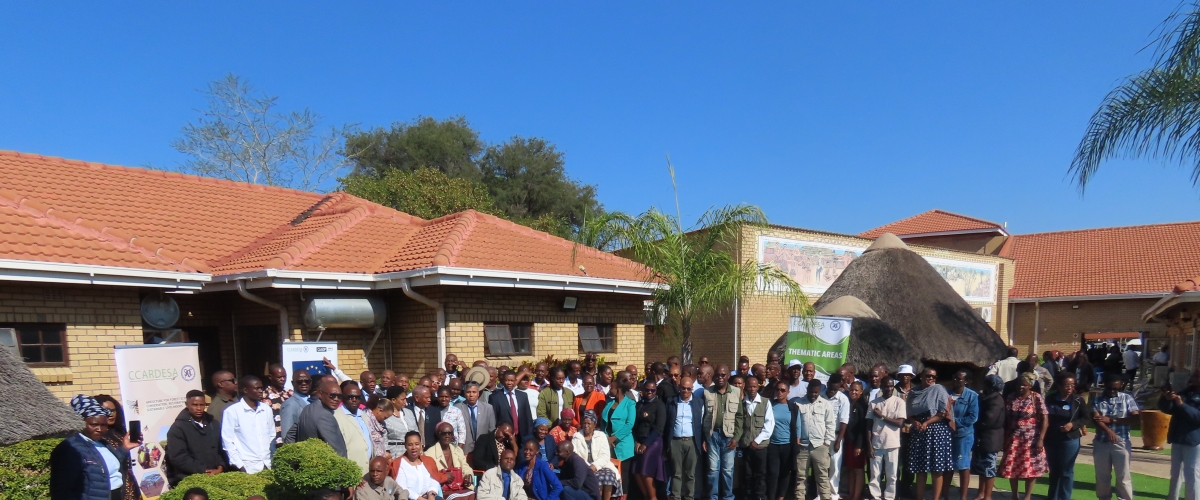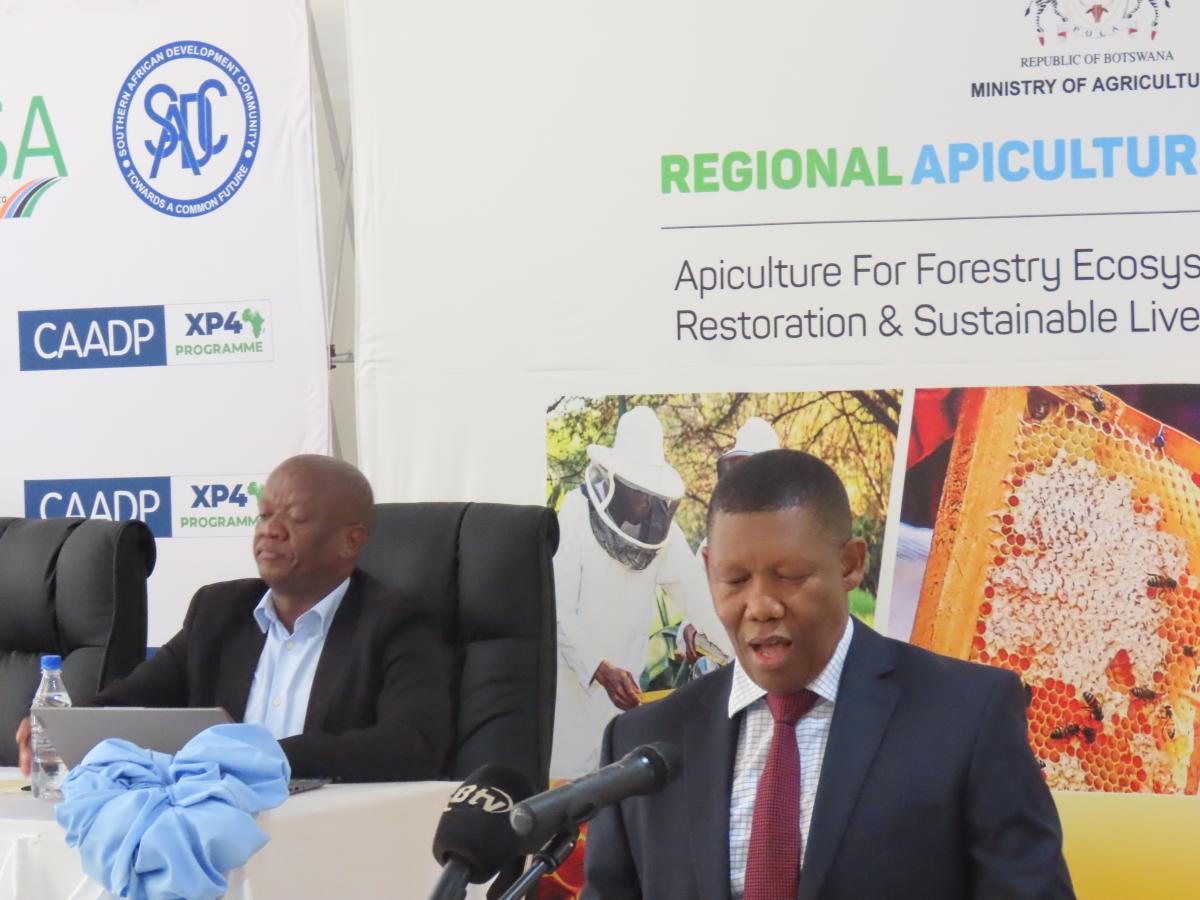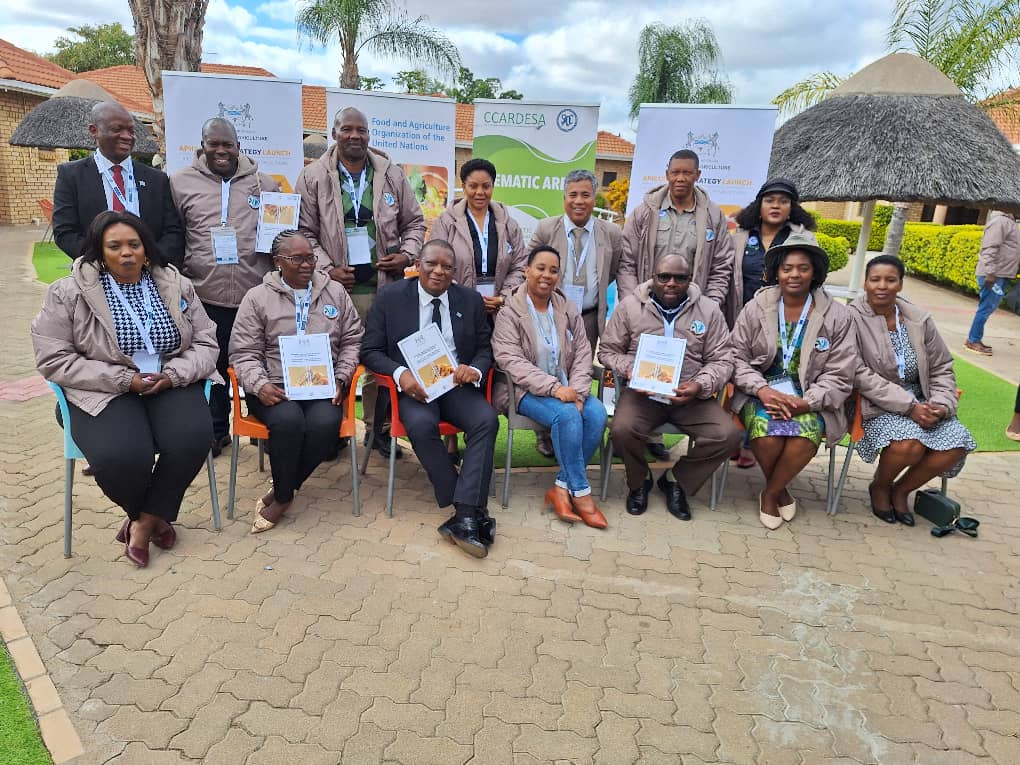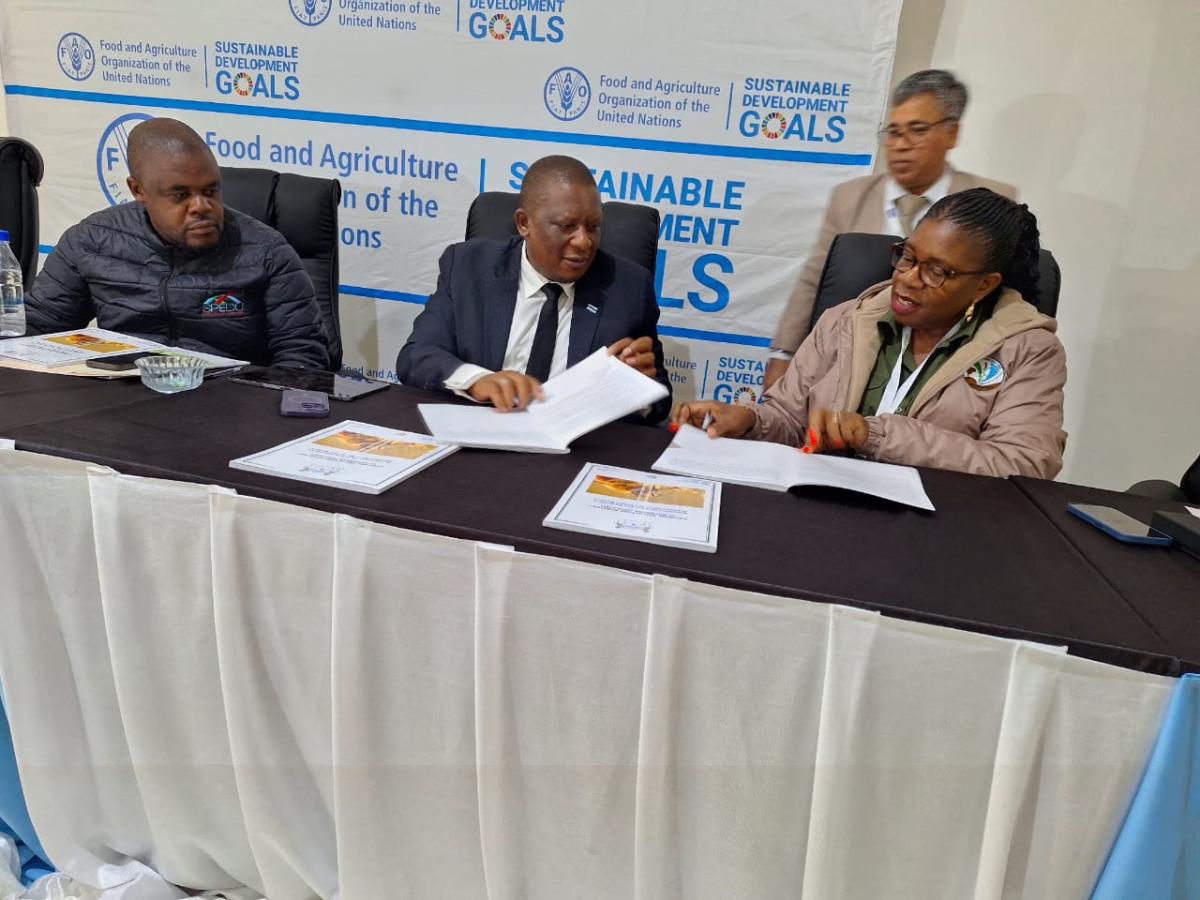
Selebi Pikwe, Botswana – In a significant step towards supporting Botswana’s sustainable agriculture and economic diversification, the CAADP-XP4 Programme, with support from the European Union through IFAD, supported the Ministry of Agriculture in Botswana to host its first-ever Regional Apiculture Symposium at the Hotel Selibe. The event coincided with World Bee Day and aimed to strengthen the apiculture industry, highlighting its potential to bolster the country's economy and contribute to the Sustainable Development Goals (SDGs).
The symposium fostered collaboration, bringing together Apiculture experts, farmers, researchers, and representatives from SADC Members. They united to discuss the challenges and opportunities within the beekeeping sector. Dr Baitsi Podisi, CAADP-XP4 Coordinator, gave official remarks on behalf of CCARDESA Executive Director Prof. Cliff Dlamini at the event. He said, "At CCARDESA, we're dedicated to advancing sustainable agricultural practices that support our ecosystem’s health," and Dr. Podisi emphasized the importance of developing bee-friendly methods.

Experts underscored the untapped potential of the honeybee industry in Botswana, which could serve as a viable alternative to mineral resources which are finite. This industry holds promise, particularly for rural and small-scale farmers. "We are ready to explore ways in which beekeepers and the government can work together for sustainable agriculture," announced the Deputy Permanent Secretary, Mr Gulam Kibria, representing the Botswana Minister of Agriculture at the official opening of the symposium.
The event also addressed various challenges faced by the beekeeping community, including expensive equipment, climate change impacts, and the need for more effective policy frameworks.
Apiculture experts from Botswana, Eswatini, Lesotho, Tanzania, South Africa, Zimbabwe, and Zambia shared their experiences, opportunities, and challenges in the sector. It was exciting to learn from SADC countries such as Tanzania, which is the second-highest honey producer in Africa. Establishing a regional apiculture network and planned future collaborations, such as hosting international beekeeping conferences, Botswana is set to become a notable player in promoting sustainable beekeeping practices across Africa.
The symposium also saw the launch of Botswana's national apiculture strategy, which was developed with support from the FAO. Prof. Melusi Rampart of the Botswana University of Agriculture and Natural Resources (BUAN) informed the meeting that the prime objective of Aquaculture Strategy development was to understand the main challenges in the honey value chain in Botswana so that the country can best understand the market landscape. This strategy aims to transform apiculture policy, enhance market access, and increase productivity from 20% to 60% by 2030. "This sector not only sustains our environment but also provides the financial muscle of our country," stated Permanent Secretary of the Ministry of Agriculture in Botswana, Nancy N. Chengeta. She emphasized, "We must transform these challenges into opportunities to build resilience and find sustainable solutions."

During the Botswana Apiculture Strategy launch, the Honourable Assistant Minister of Agriculture and Food Security in Botswana, Mr Molebatsi Molebatsi, shared how the Ministry of Agriculture in Botswana is revolutionizing the agriculture sector with a strong commitment to sustainable practices. As part of this transformative agenda, He shared how the Ministry is currently reviewing and implementing a series of programs aimed at enhancing the sector's productivity and sustainability. Among these initiatives is the launch of "Temo Letlotlo," a new program focused on overall agricultural improvement, and "Khumo Letlotlo," specifically designed to boost the livestock sector. He indicated that farmers are encouraged to adopt climate-smart agricultural techniques to align with government efforts and support this shift. Moreover, the Ministry has developed a strategic roadmap to revitalize the bee industry, a sector with untapped potential to diversify the economy away from mineral dependence. Despite its modest contribution to the national GDP and current production meeting only 13% of domestic demand, the honey industry holds significant importance for many small-scale farmers. The strategy signing off by the Honourable Assistant Minister concluded the meeting positively, setting a hopeful trajectory for the future of Botswana's agriculture.

As the symposium concluded, the message was clear: by uniting efforts, enhancing technical knowledge, and leveraging government support, the beekeeping industry in Botswana can thrive, contributing significantly to both environmental sustainability and economic growth.





